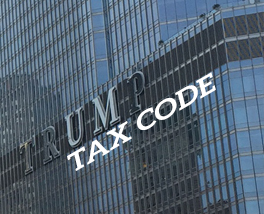Breaking Down the House Tax Bill from a Business Perspective
The long awaited tax bill was finally released yesterday. Outlined below, we will try to break down the highlights from a business perspective.
Flow through changes
The promised 25% “business tax rate” comes with many qualifiers.
- All income allocated to a passive investor is subject to the 25% rate.
For shareholders/partners who materially participate, you have a choice:
- Default into treatment of 30% of flow-through income being taxed at the 25% rate, with the rest at your individual rate, or
- Make an argument, using a formula, based on the facts and circumstances of their business that more than 30% of the income is attributable to capital, and should be taxed at 25%.
For those of us in the accounting/law/personal services world, the default setting is that 0% of our income is taxed at 25%, but again, we can try and argue that our business generates some income from capital and should get the rate.
Other Business Tax Changes:
- Corporations and partnerships with a C corporation partner will now be able to use the cash method as long as average receipts for the previous three years are less than $25 million, rather than $5 million under current law.
- All businesses would be allowed to use the cash method – even if they have inventory if average receipts is less than $25M.
- Corporate NOLs would only be allowable to offset 90% of income, similar to the current rules on AMT, and all carrybacks would be eliminated.
- No uniform capitalization on up to $25M of average receipts. This applies to both producers and resellers.
- For the next five years, businesses can immediately expense all assets with a life less than 20 years. Doesn’t have to be a new asset, just first use BY THE TAXPAYER.
- For after immediate expensing phases out, Section 179 is being raised to $5M from $500K, with a phase out starting at $20M of assets.
- Businesses with average receipts > $25M will lose all interest expense deductions that exceed 30% of EBITDA.
- No more like-kind exchanges on personal property; just real property.
- No more domestic manufacturing deduction.
- It looks like all deductions for entertainment, but not meals, would be disallowed.
- It appears all contributions to capital of a corporation or partnership would be taxable if the entity doesn’t issue an equity interest with a FMV equal to the contribution.
- The technical termination rules for partnerships of Section 708 would be repealed.
- Pretty much all credits disappear except for R&D and low-income housing.
- Amounts paid to corporate executives in excess of $1M for performance-based bonuses would not be allowed.
Withum’s Tax Services
If you have any questions around the House Tax Bill or would like to speak with one of Withum’s tax experts, fill in the form below and we will be in touch!
How Can We Help?


